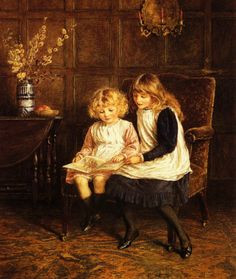Last week a reporter contacted me. She wanted to know why we should encourage kids to read. Some of you might know that I am skeptical about a lot of the claims about reading. I certainly accept that idea that kids learn from reading (introspection alone should tell you that), but how much reading practice it takes to improve reading achievement is not exactly clear. Given that, I'm not exactly the poster boy for those who claim to be improving reading by getting kids to engage in it.
Nevertheless, I'm not against encouraging kids to read. Actually, I'm for it. The thoughts below might help you to think about why we want kids to read.
I know a lot more about how to make someone a reader than about the consequences of reading. Part of this is a problem of not being able to do experiments on this subject (one couldn't very well constrain people from reading in a control group), so for the most part we are left to correlational studies that show a higher likelihood of certain outcomes for certain kinds of people (in this case, any differences between readers and non-readers would show a correlation) or we draw from more incidental insights, such as anecdotes or reviews of people's diaries.
Some studies have shown that there is a lot more mental activity going on when someone is reading than when they are watching television. Research isn't very clear on the effects of brain exercise, but there is wide belief in the field that mental activity is a good thing, and reading certainly gets the synapses going. I just heard a physician explaining how reading (and other good mental activity) can help delay the symptoms of dementia; of course, with kids we don't think about dementia (though it is rare that someone who didn’t like reading as a child becomes a big reader later, so the earlier you start, the healthier your brain is likely to be in the long run).
There is a lot of correlational research suggesting that people who read have much bigger vocabularies and know more information about their world, and both of those can have payoffs in later life (better academic success, more income, etc.), and, again, people who know more, read more, go to school more end up with healthier lives (whether this is due to those activities themselves or to what proficiency in those activities means to incomes is unknown). Boys often like to read about real stuff (not stories), and there are clear knowledge benefits to reading science, sports, history, etc.
A lot of reading, especially for older children, is aspirational. Kids start to wonder what kinds of people they are going to want to be, and being able to closely read about the accomplishments and interior life of others can be a real boon. (For instance, I grew up in a family in which no one had more than a high school education. I decided while reading books that I was going to college). Kids often select role models and careers based on what they read. So biographies, autobiographies, and fiction with strong positive characters are great reading choices for 'tweens.
Many people use reading as a form of escape, particularly when their emotional worlds are closing in on them. I know many women who are overwhelmed by the demands of their jobs, their husband, their kids, etc. They don't read for intellectual stimulation (if anything they feel over stimulated), but they read to get away from all of the demands. Children like this kind of escape as well (getting to someplace different, with different people). Reading can have a tranquilizing effect. I usually read before going to sleep at night. It allows me to stop my mind from racing and to get away from myself for a few moments which allows me to relax and sleep well. Any kind of text that is of topical interest to the reader is great for this.
While some people use literacy as a way of shutting down external chaos and to get away from it all, others use it to connect socially. The most immediate examples of that are when individuals share a book and discuss it. Books can become the links among people (in book clubs, for instance). Many people enjoy baseball because it connects them to certain people who they associate with baseball; so if your father took you to games as a girl, you would be more likely to go to games now (even if you really don't care that much about baseball itself). Families that read and write together and who make books the center of some of their connections and conversations will love reading because it seems responsible for the relationships. So, reading books together is a great idea -- or reading texts that have strong author voices, another kind of interpersonal connection.
Reading is a great opportunity to imagine. This might refer to reading a Stephen King novel (in which case people are reading to scare themselves, which apparently fosters a sense of how bad things could be and how much in control we really are) or to imagining places far away or the kinds of lives that we would want to have (like wanting a happy family life when none is evident).
Reading is inspirational. It can put us in touch with God, beauty, truth, wisdom, or joy. It can give us hope and can empower us to change ourselves, to change our world, or to simply wonder.
There is a book out there for everyone.






Comments
See what others have to say about this topic.